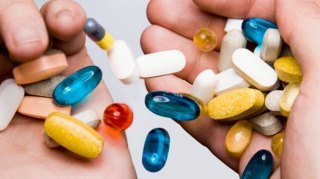Have you heard about these things but never really known what they were or what their function was? Well, here is your chance! Welcome to everything you need to know about antioxidants. Antioxidants are substances that may protect cells from the damage caused by free radicals. Free radical damage may lead to cancer. Antioxidants interact with and stabilize free radicals, which might prevent some of the damage free radicals might otherwise cause.
Wait a minute ….how exactly do they work is what I am guessing what you will ask next. Antioxidants neutralize free radicals as the natural by-product of normal cell processes. Free radicals are molecules with incomplete electron shells, which make them more chemically reactive than those with complete electron shells. Think balance is good and unbalanced is bad!
Exposure to various environmental factors, including cigarette/tobacco smoke and radiation, can also lead to free radical formation. In humans, the most common form of free radicals is oxygen. When an oxygen molecule (O2) becomes electrically charged or “radicalized” it attempts to steal electrons from other molecules, causing damage to the DNA and other molecules. Over time, such damage may become irreversible and lead to disease including cancer. Antioxidants are often described as “mopping up” free radicals, meaning they neutralize the electrical charge and prevent the free radical from taking electrons from other molecules.
Well now that I know about this what should I do? Well it is suggested that food provides a great source of antioxidants and which is why many foods have been singled out for their antioxidant powers.
· Beta-carotene is found in many foods that are orange in color, including sweet potatoes, carrots, cantaloupe, squash, apricots, pumpkin, and mangos. Some green, leafy vegetables, including collard greens, spinach, and kale, are also rich in beta-carotene.
· Lutein, best known for its association with healthy eyes, is abundant in green, leafy vegetables such as collard greens, spinach, and kale.
· Lycopene is a potent antioxidant found in tomatoes, watermelon, guava, papaya, apricots, pink grapefruit, blood oranges, and other foods.
· Selenium is a component of antioxidant enzymes. Plant foods like rice and wheat are the major dietary sources of selenium in most countries. The amount of selenium in soil, which varies by region, determines the amount of In the United States, meats and bread are common sources of dietary selenium.
· Foods rich in vitamin A include liver, sweet potatoes, carrots, milk, egg yolks, and mozzarella cheese.
· Vitamin Cis also called ascorbic acid, and can be found in high abundance in many fruits and vegetables and is also found in cereals, beef, poultry, and fish.
· Vitamin E is found in almonds, in many oils including wheat germ, safflower, corn, and soybeanoils, and is also found in mangos, nuts, broccoli, and other foods.
·
So I eat these foods and I will no longer be at risk for cancer or other conditions caused by exposure to free radicals right? WRONG! There has been a large amount of laboratory evidence that indicates antioxidants may slow or possibly prevent the development of cancer. However, information from recent clinical trials is less clear. More studies are being done presently in order to determine their real effects. But in the meantime it wouldn’t hurt to integrate antioxidants into your diet and lifestyle. Many of the foods that contain these little wonders are super healthy and good for you so why not eat them. Make a little change and it could possibly prevent you from many ailments in the future.







You must be logged in to post a comment.